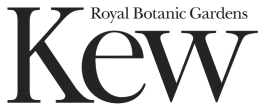Global demand for Madagascar's unique plants fuels unsustainable harvesting
Madagascar’s extraordinary medicinal plants, prized for their unique properties and used in life-saving cancer drugs and health products, are being harvested in unregulated quantities for local and international trade, reveals new research from TRAFFIC.
Although many local people earn a living from harvesting Madagascar’s highly prized and unique plants — containing higher concentrations of medicinal ingredients than identical species grown elsewhere — poor management, illegal activity, and unjust supply chains threaten the longevity of the industry and those that rely on it.
Cynthia Ratsimbazafy, TRAFFIC Project Manager in Madagascar, said:
“There is something special about the biodiversity of Madagascar in that many species have medicinal properties highly attractive to the pharmaceutical industry.”
One such species is Catharanthus roseus, commonly known as ‘periwinkle’, which contains alkaloids which are widely used in the treatment of breast, lung, and testicular cancer, as well as childhood leukemia.
These properties, unique to Madagascan plant strains, occur because of the particular composition of the soil in the country.

Baobab fruit: Rich in nutrients, it's prized for health supplements, skincare products, and superfoods — global demand now threatens its sustainability. @Ton Rulkens/Wikimedia
While these ingredients are worth millions of dollars to international pharmaceutical companies, local harvesters are paid just USD2-2.5 per day, an income below the minimum wage, for working 5am to 12 noon, often without a break.
This disparity between minimal earnings of local harvesters compared with large profits made by the global pharmaceutical industry using these plants goes against principles of fair access and benefit, which were internationally agreed as part of the Convention on Biological Diversity.

According to information collected by TRAFFIC from government bodies, between 2018 and 2023 Madagascar exported 35,800 tons of medicinal plant species. The annual average declared commercial value of these exports is USD68 million.
But a lack of regulation, enforcement, and oversight of the harvesting and trade of these critically valuable plants is also raising concerns that their survival in the wild could come under threat.
Less than 45% of trade in Madagascan medicinal plants is conducted legally, and local harvesters are already reporting a change in the abundance and quality of high-value target species such as Centella.

TRAFFIC’s Policy brief on the Malagasy medicinal and aromatic plants (also available in French) sets out a suite of urgent recommendations to overhaul Madagascar’s wild plant trade for the benefit of people, nature, and sustainable development opportunities.
Ratsimbazafy added:
“There is a win-win outcome available here. We are fortunate to be doing this study before any of these plants are classed as endangered. If the authorities move fast and use this data to establish a fair, controlled, and sustainable trade in these medicinal plants, then they could secure better livelihoods for local Madagascan communities, and a long-term secure future for these plants which people around the world depend upon to treat cancer and other illness”.
Notes:
This project is funded by the UK Government through the Illegal Wildlife Trade Challenge Fund (IWTCF) and implemented by TRAFFIC in partnership with Kew Madagascar.
About Royal Botanic Gardens, Kew

With over 350 scientists, Kew’s mission is to understand and protect plants and fungi for the well-being of people and the future of all life on Earth. Kew’s structure, research and resources align to five Scientific Priorities, to help them achieve transformative change and maximum positive impact.
About The Illegal Wildlife Trade Challenge Fund

Funded by the UK Government through Illegal Wildlife Trade Challenge Fund.
The Illegal Wildlife Trade Challenge Fund is a UK government grants scheme that provides support to projects around the world that are tackling the illegal wildlife trade. IWT Challenge Fund





